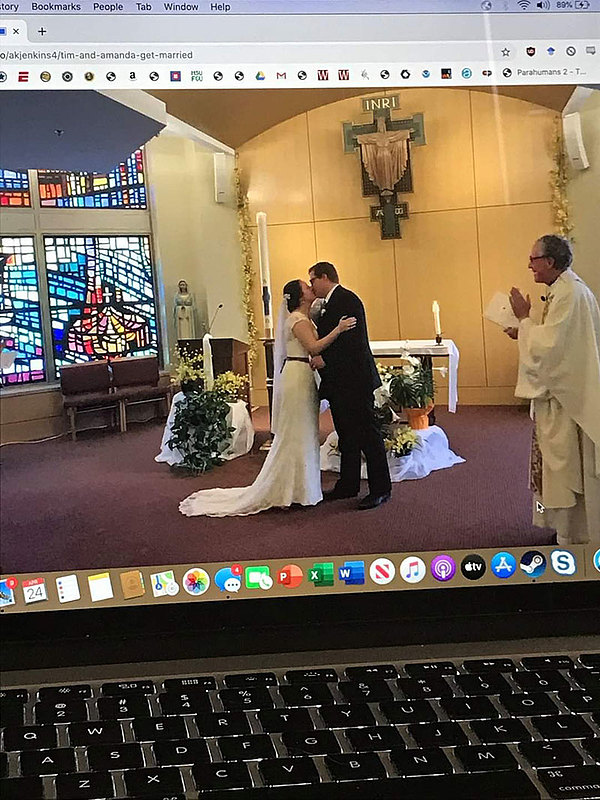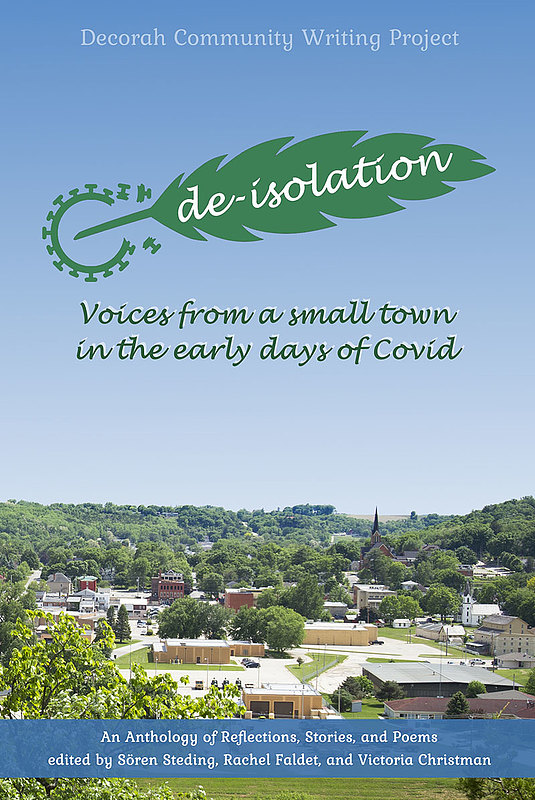Processing COVID as a community
As people around the world grapple with what it means to live in a pandemic, the Luther and Decorah communities are finding ways to come to terms with it together. Two new projects put this kind of work at the center. A COVID-19 archive project, spearheaded by college archivist Hayley Jackson, invites faculty, staff, students, alumni, and Winneshiek County community members to submit items—from photos and videos to masks and recipes—that document what it’s like to be alive in the Decorah region during this time.

A submission to the COVID-19 archive project shows a live stream of a socially distanced wedding.
In a second project, the Center for Ethics and Public Engagement asked Decorah and Luther community members to submit essays, stories, and poems that reflect on a world with coronavirus. These writings appear this month in a printed anthology, de-isolation: Voices from a Small Town in the Early Days of Covid.
The anthology is edited by Luther faculty members Victoria Christman, Rachel (Andersen) Faldet ’78, and Sören Steding. Says Steding, “While writing and reading are both characterized by solitude, they are activities that thrive to connect—with other people, other ideas, other times and places. . . . As we have to celebrate community by being apart, as we have to show our love of others by avoiding them, we hope that with this book of stories, poems, and reflections we can reconnect and de-isolate by sharing our experiences, fears, hopes, and laughter.”
The anthology will be available in late September in the Luther Book Shop, at local bookstores, and on Amazon. All proceeds will be donated.

The de-isolation anthology, a community writing project about living in a pandemic, will be published in late September.
Excerpt from “I don’t know what I’m doing” by Becky Idstrom
Sometimes the earth moves so slowly, I don’t recognize that I don’t recognize it. When did the world become so lonely that it’s afraid to be alone? When did sitting still become unbearable, and quiet become cold?
This spring, I cling to the feeling of touching my own familiar hands, as I learn new habits of how to wash clean. I spot for the ground like a gymnast in the air, hoping I’ll land, when work is pulled away, when friends despair, when community judges, when children go hungry, when neighbors die.
But there’s that moment in all this uncertainty, that split second of flying, before the floor seems all too near. That brief sense of opening when space becomes home. I know this feeling like the memory flash of a dream. The black hole of everything finally finds room for itself – the frog song and the rain, the face masks and the gunshots, the dust swirling microbes in the sunshine.
This is what I try to remember now, when I don’t know what to do, when it’s obvious, for once, that even breathing is precarious. This is what I try to remember now – the knowing of letting it all in and then the knowing of letting it all go. Over and over and over, the knowing of the gratitude that is already, unfailingly, naturally, always.